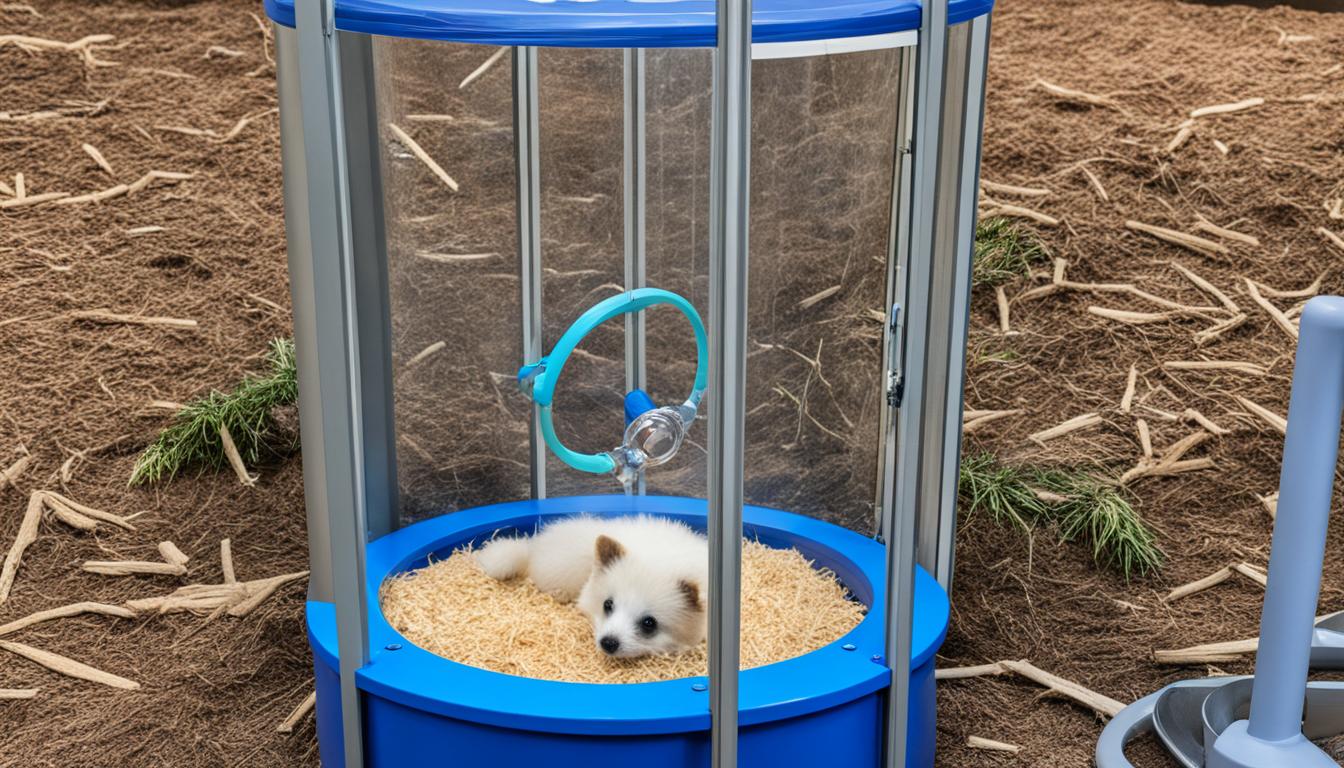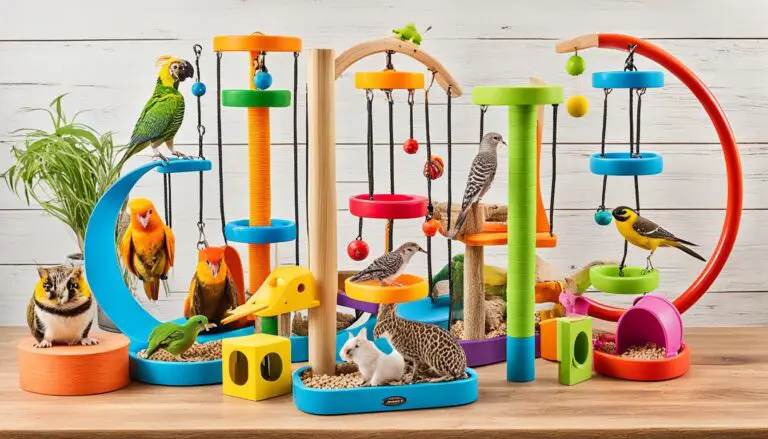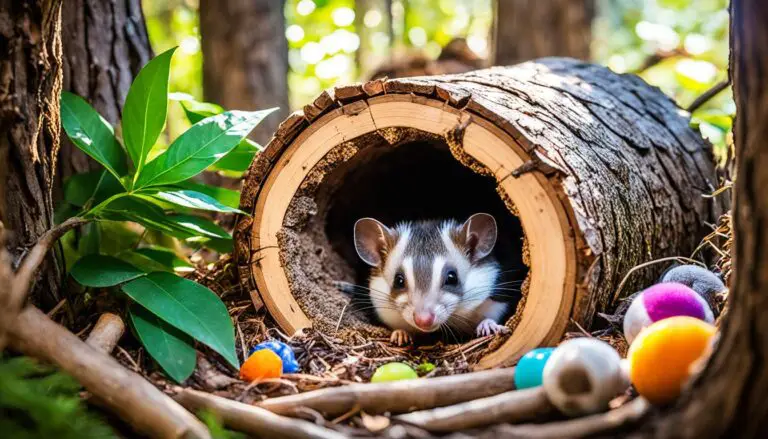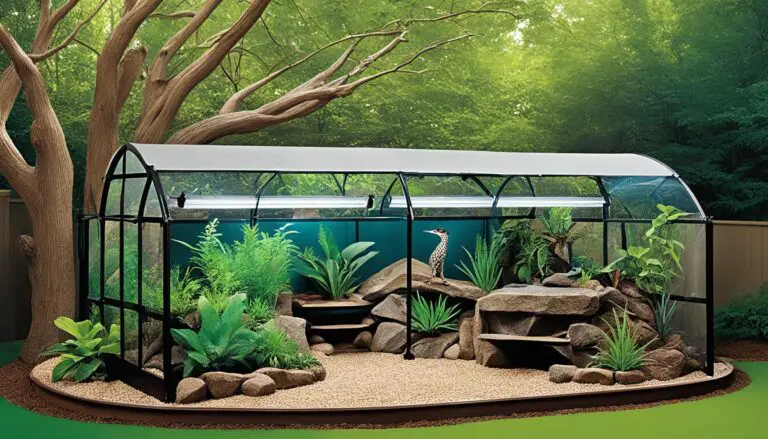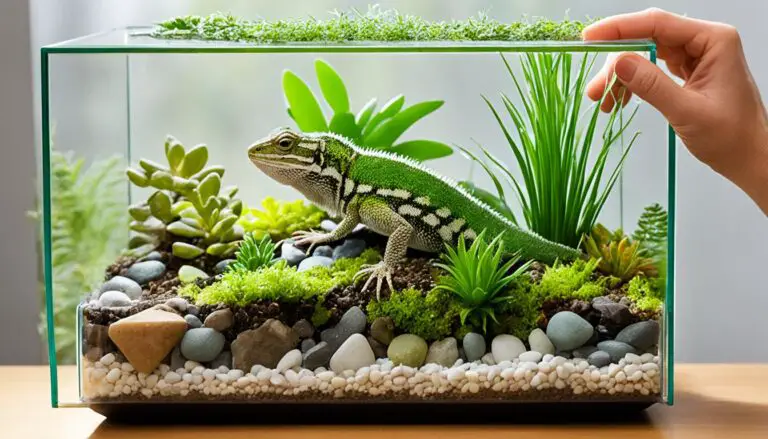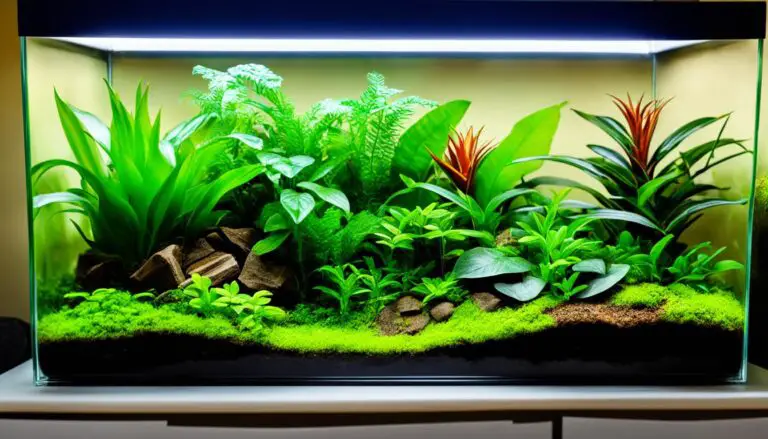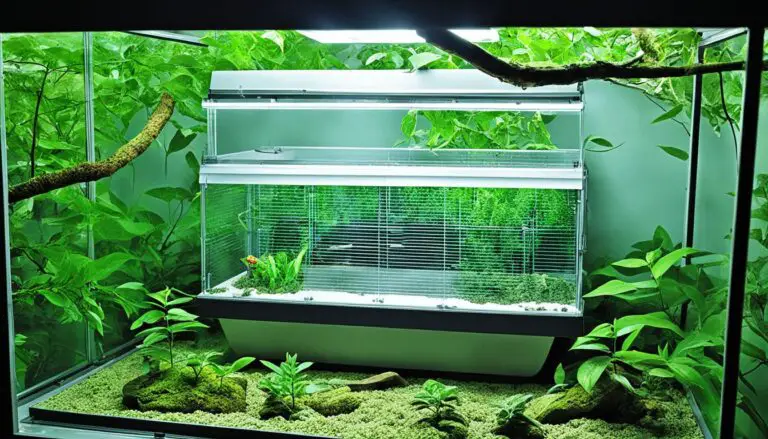Exotic Pet Housing Safety Tips & Best Practices
Exotic pets require secure and safe housing to ensure their well-being. Proper housing can help prevent heat stress and heat stroke, especially during the summer months. It is important to understand the specific needs and husbandry techniques for your unique pet to create a comfortable habitat. Small mammals and rodents should be housed in temperature-controlled areas, while birds and reptiles should have access to ample ventilation and shade. Monitoring for signs of dehydration and heat stress is crucial, and immediate veterinary attention should be sought if any symptoms are observed.
Creating a Suitable Habitat for Small Mammals and Rodents
Small mammals and rodents, such as rabbits, chinchillas, and rats, require a suitable habitat that provides them with enough space and optimal temperature control for their well-being. It is crucial to provide a cage or secure pen that is spacious enough to accommodate their needs and allows them to move around comfortably. Additionally, maintaining a temperature-controlled environment is essential to ensure their comfort and prevent any heat-related issues.
When setting up their enclosure, it is best to place it in a cool area away from direct sunlight. This helps to maintain a stable temperature and prevents overheating. If you decide to keep them outdoors, make sure the housing is placed in shaded areas to shield them from the sun’s intense heat. This way, they can enjoy fresh air without being exposed to excessive heat.
Another important aspect to consider is providing fresh water daily to keep your small mammals and rodents hydrated. Hydration is key to their overall well-being, especially during hot weather. Fresh fruits can also be given as a cooling treat, which not only helps them stay hydrated but also enriches their diet.
Regular cleaning and bedding replacement are essential to maintain a hygienic living environment for your pets. Daily cleaning helps prevent the accumulation of waste and reduces the risk of parasite infestation. By ensuring cleanliness, you create a healthier and more comfortable habitat for your small mammals and rodents.
It is also crucial to protect your pets from potential dangers posed by other animals, both wild and domestic. Predators can threaten the safety of your small mammals and rodents, so it is important to ensure that their enclosures are secure and properly sealed to prevent any unwanted visitors.
Making Your Pet’s Habitat Comfortable
- Provide a spacious cage or secure pen that allows them to move around freely
- Maintain a temperature-controlled environment to prevent heat-related issues
- Place the enclosure in a cool area away from direct sunlight
- Keep outdoor housing in shaded areas to protect from excessive heat
- Provide fresh water daily for hydration
- Offer fresh fruits as a cooling treat
- Clean the enclosure regularly to maintain hygiene
- Replace bedding frequently to prevent parasite infestation
- Ensure the enclosure is secure to protect them from predators
Creating a suitable habitat is crucial for the health and well-being of small mammals and rodents. By providing them with a spacious, temperature-controlled enclosure and maintaining cleanliness, you can ensure their comfort and safety. Additionally, taking measures to protect them from potential predators is essential. Remember to consult with a veterinarian for specific housing recommendations tailored to your pet’s needs.
Ensuring Comfortable Housing for Birds and Reptiles
Birds and reptiles have specific housing requirements to ensure their comfort and safety. It is crucial to provide them with well-ventilated enclosures that offer shade, especially when they are housed outdoors. This helps protect them from extreme weather conditions and ensures a suitable habitat for their well-being. When temperatures exceed 85 degrees, it is important to bring them into an air-conditioned environment to prevent heat-related complications.
When taking your exotic pets outside in a mobile cage, it is essential to supervise them at all times. This is to prevent potential attacks by other animals and to keep them secure and within your sight. Monitoring for signs of heatstroke, such as lethargy or excessive panting, is crucial. If any symptoms are observed, immediate action should be taken to cool down the pet and make the necessary adjustments to the housing environment.
“Providing a comfortable and secure enclosure is essential for the health and happiness of birds and reptiles.”
Proper housing guidelines for birds and reptiles may include:
- Ensuring appropriate cage size to allow for natural movements
- Providing perches or climbing structures
- Choosing non-toxic materials for the enclosure
- Having a secure locking mechanism to prevent escapes
- Regular cleaning to maintain hygiene and prevent diseases
By following these guidelines and ensuring safety in the exotic pet housing, you can create a comfortable environment that promotes the well-being of your birds and reptiles.
Example of an Exotic Pet Housing Checklist for Birds and Reptiles:
| Aspect | Guidelines |
|---|---|
| Cage Size | Allow ample space for natural movements |
| Enclosure Materials | Choose non-toxic materials for safety |
| Perches/Climbing Structures | Provide opportunities for physical exercise |
| Secure Locking Mechanism | Prevent escapes and ensure safety |
| Hygiene | Maintain cleanliness to prevent diseases |

Creating a secure and comfortable living environment for birds and reptiles is crucial for their overall well-being. By following these exotic pet housing guidelines, you can ensure that your feathered and scaly friends are safe and happy in their habitats.
Understanding the Unique Needs of Exotic Pets
Exotic pets have unique needs and requirements that differ from traditional pets. It is crucial for pet owners to have an in-depth understanding of these species-specific needs in order to provide them with appropriate housing and environment. Various factors such as location, safety, climate, bedding, hygiene, and resource access need to be carefully considered when creating a suitable habitat for exotic pets.
A well-regulated environment is paramount for the health and well-being of exotic pets. Maintaining proper exotic pet housing standards ensures their safety and reduces the risk of potential hazards. Pet owners should pay particular attention to security measures, preventing potential escapes, and protecting these pets from harmful substances or objects within their enclosures.
Keeping the climate in mind is vital for exotic pet enclosure tips. Exotic pets come from diverse regions around the world, each with its own unique climate. Owners should strive to replicate the ideal temperature, humidity, and lighting conditions for their particular pet species. This can be achieved through the use of thermostats, heat lamps, cooling devices, and appropriate lighting sources that mimic natural day-night cycles.
Bedding and hygiene play a significant role in maintaining the health of exotic pets. The appropriate choice of bedding material, such as substrates or cage liners, should prioritize pet comfort and cleanliness while minimizing the risk of respiratory issues or skin irritations. Regular cleaning and disinfection of enclosures should be implemented to prevent illness and disease transmission.
Resource access is another important aspect of creating a suitable habitat for exotic pets. Easy access to food, water, and other essential resources is essential for their overall well-being. Pet owners should ensure that their pets have a sufficient and balanced diet tailored to their species. Regularly providing fresh water and monitoring consumption is crucial to prevent dehydration.
Proper nutrition is key to maintaining the health and vitality of exotic pets. Consultation with a veterinarian or an exotic pet nutritionist can help determine the appropriate diet and feeding schedule for each specific species.
Essential Components for Exotic Pet Housing
| Component | Description |
|---|---|
| Secure Enclosure | A housing structure that prevents escapes and protects pets from potential dangers. |
| Climate Control | Appropriate temperature, humidity, and lighting conditions to mimic the pet’s natural habitat. |
| Hygiene Practices | Regular cleaning and disinfection of enclosures to prevent illness and disease transmission. |
| Proper Bedding | The use of suitable bedding materials that prioritize pet comfort and cleanliness. |
| Resource Access | Easy access to food, water, and other essential resources necessary for the pet’s well-being. |
Providing appropriate housing and environment for exotic pets is crucial in ensuring their overall health and happiness. By understanding their unique needs and following recommended exotic pet enclosure tips, pet owners can create a safe and nurturing habitat that promotes their well-being.

Providing Proper Nutrition and Enrichment for Exotic Pets
When it comes to exotic pets, proper nutrition and enrichment are essential for their overall wellbeing and happiness. These furry, scaly, or feathered companions have unique dietary and behavioral needs that should be met to ensure their physical and emotional health. Let’s explore some key considerations for providing the right nutrition and enrichment for your exotic pets.
The Importance of a Species-Specific Diet
Exotic pets thrive when their diet closely mimics what they would eat in the wild. It’s crucial to consult with a veterinarian experienced in exotic pet care to get precise dietary guidance for your specific pet. They can provide valuable insights into the ideal balance of proteins, carbohydrates, fats, vitamins, and minerals your pet requires. A diverse and balanced diet supports proper growth, development, and immune function.
Remember, each exotic pet species has its own unique dietary requirements, so avoid following generic advice found online. Your veterinarian will consider factors such as your pet’s age, size, activity level, and any specific health conditions to develop a tailored diet plan.
Enriching the Habitat for Physical and Mental Stimulation
Exotic pets need more than just proper nutrition to thrive. Environmental enrichment plays a vital role in keeping them physically active and mentally stimulated. By providing appropriate toys, visual stimuli, climbing structures, and positive social interactions, you can meet their natural behavioral needs.
For example, birds enjoy perches of different sizes and textures, ropes for climbing and swinging, and interactive toys that encourage foraging. Reptiles may benefit from hiding spots, basking platforms, and items they can explore and interact with, such as branches and rocks.
To enhance your exotic pet’s well-being, consider the following enrichment ideas:
- Rotate toys and objects in their enclosure to prevent boredom.
- Include natural materials, such as untreated wood or branches, to mimic their natural habitat.
- Provide puzzles and treat-dispensing toys for mental stimulation.
- Offer opportunities for social interaction, if appropriate for your pet’s species.
Remember that each exotic pet has its own preferences and needs, so observe and adjust the enrichment options accordingly. Your pet’s behavior and enjoyment are the best indicators of whether they are benefiting from the provided enrichment.
| Proper Nutrition | Enrichment |
|---|---|
| Species-specific diet | Toys and visual stimuli |
| Balanced nutrients | Climbing structures |
| Consultation with a veterinarian | Positive social interactions |
| Special considerations for age, size, and health | Diverse and engaging environment |
Conclusion
Caring for exotic pets requires a dedicated approach to their housing and environment. By understanding their specific needs and following best practices, pet owners can ensure the safety and well-being of their unique companions.
Providing safe and comfortable housing is essential for exotic pets. Secure enclosures and habitats that meet their specific requirements will help prevent heat stress and other potential hazards. Regularly monitoring the temperature and providing proper ventilation and shade for birds and reptiles, as well as temperature-controlled areas for small mammals and rodents, is crucial for their health.
In addition to housing, exotic pets need a balanced and species-specific diet. Consulting with a veterinarian to determine their nutritional needs and following their guidance will help maintain their overall health.
Enrichment activities and environmental stimuli are important for the psychological well-being of exotic pets. Offering toys, climbing structures, and positive social interactions can help meet their natural behavioral needs.
Remember, regular veterinary care, close monitoring of their behavior and health, and strict adherence to safety measures are vital when caring for exotic pets. By implementing these care tips and best practices, you can create a secure and nurturing environment for your unique exotic pets.
FAQ
What are some important safety tips for housing exotic pets?
How should small mammals and rodents be housed?
What are the housing requirements for birds and reptiles?
How can I create a suitable habitat for my exotic pet?
What do exotic pets need in terms of nutrition and enrichment?
What are some best practices for housing exotic pets?
Source Links
- https://www.7hillsvet.com/services/other/blog/exotic-pet-care-summer-safety-tips
- https://www.happyhealthypets.com/pet-resources/comprehensive-guide-to-caring-for-exotic-pets
- https://www.parkerwayvet.com/blog/what-to-know-before-owning-an-exotic-pet/
Peter Stones is the founder of Exotic Pets Place, the leading online resource for exotic pet care information.
With over 10 years of hands-on exotic pet ownership experience, he is deeply passionate about sharing his expertise to help others properly care for their unusual pets.
When he's not writing extensively researched articles or connecting with fellow exotic pet enthusiasts worldwide, you can find Peter at home tending to his own beloved menagerie of exotic animals.

